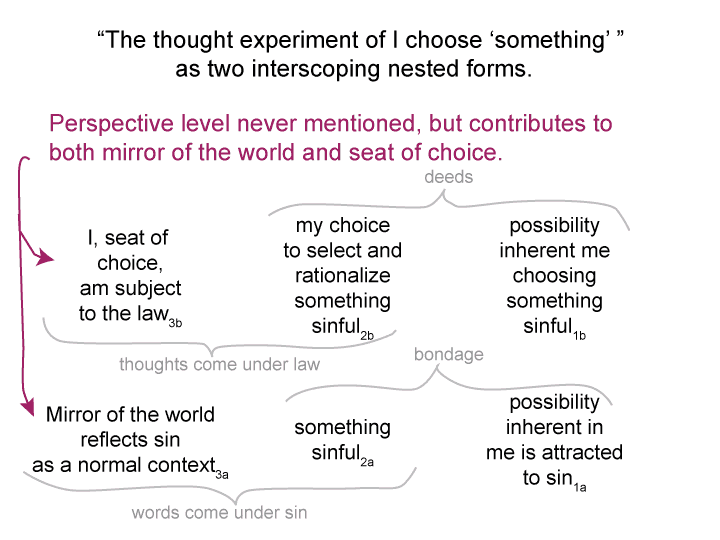Man and Sin by Piet Schoonenberg (1964) 2.3 SV
[In the intersection, words3H(2, thoughts3V(2, deeds2(1V)) and bondage2(1H)), all share one actuality: the heart2.
So I can imagine that …
… law corrupts the normal context of I, seat of choice3V.
… sin corrupts the normal context of ‘the mirror of the world3H’.
… death begins when both sin and law corrupt the heart2, the single actuality that is my choice2V and something that situates my potential2H.
Sin and law are vectors.
Death is the symptom.]


